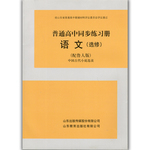题目内容
【题目】完成句子:(每空一词,15分)
【1】噪音污染对我们的耳朵有危害
Noise pollution _______ ________ _______ our ears.
【2】最后。他们成功地到达了山顶。
At last, they ________ ________ _________ to the top of the mountain.
【3】中国已采取措施来控制人口
China ________ ________ _______ to control the population.
【4】大家都应该为保护环境做出贡献
Everyone should make _______ _______ _______the environment.
【5】这本书他借了两个星期了。
He _______ ______ the book ______ two weeks ago.
【答案】
【1】is harmful to / does harm to / is bad for
【2】succeeded in getting
【3】has taken measures
【4】contributions to protecting
【5】has kept since
【解析】
试题分析:
【1】be harmful to=do harm to=be bad for对……有害,此处需要一般现在时,故填is harmful to / does harm to / is bad for。
【2】succeed in doing sth.成功做某事,根据句意应该用一般过去时,故填succeeded in getting。
【3】take measures采取措施,根据句意应该用现在完成时,故填has taken measures。
【4】make contributions to sth/doing sth.为……做贡献,故填contributions to protecting。
【5】borrow 借,当在肯定句中与时间段连用时要改为延续性动词keep,根据句意应该用现在完成时,要故填has kept since。

 海淀黄冈名师导航系列答案
海淀黄冈名师导航系列答案 普通高中同步练习册系列答案
普通高中同步练习册系列答案